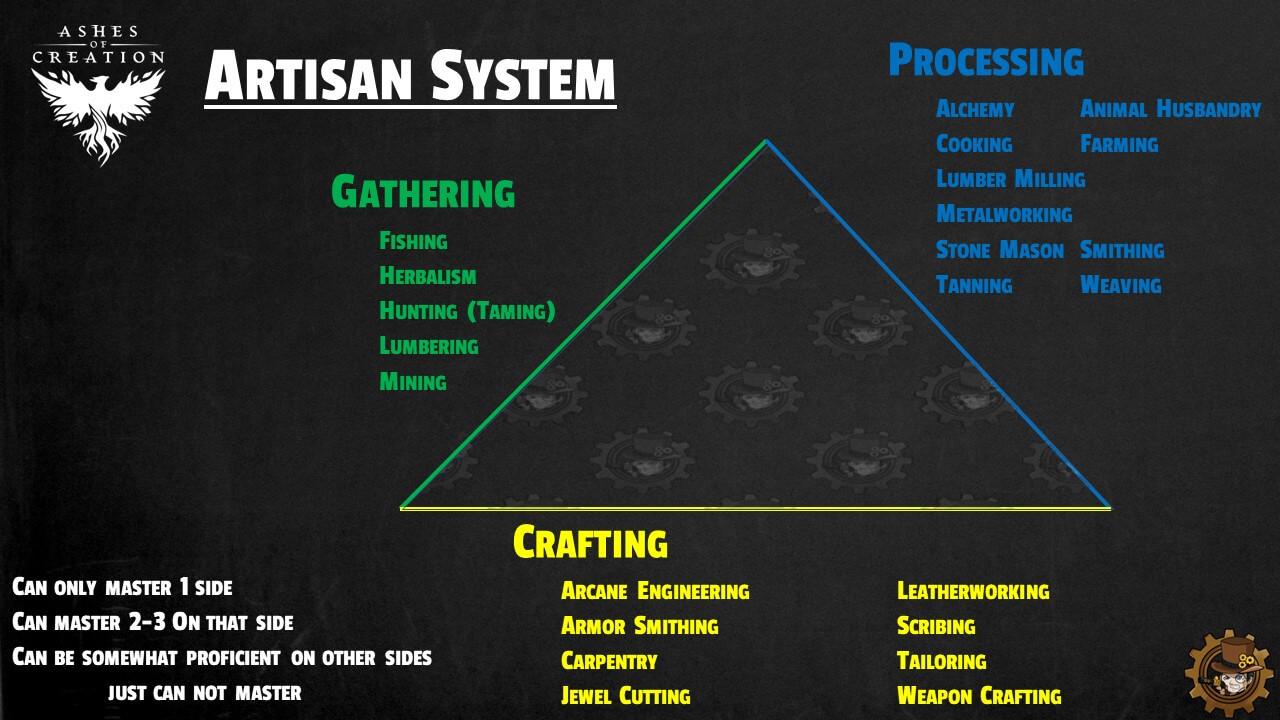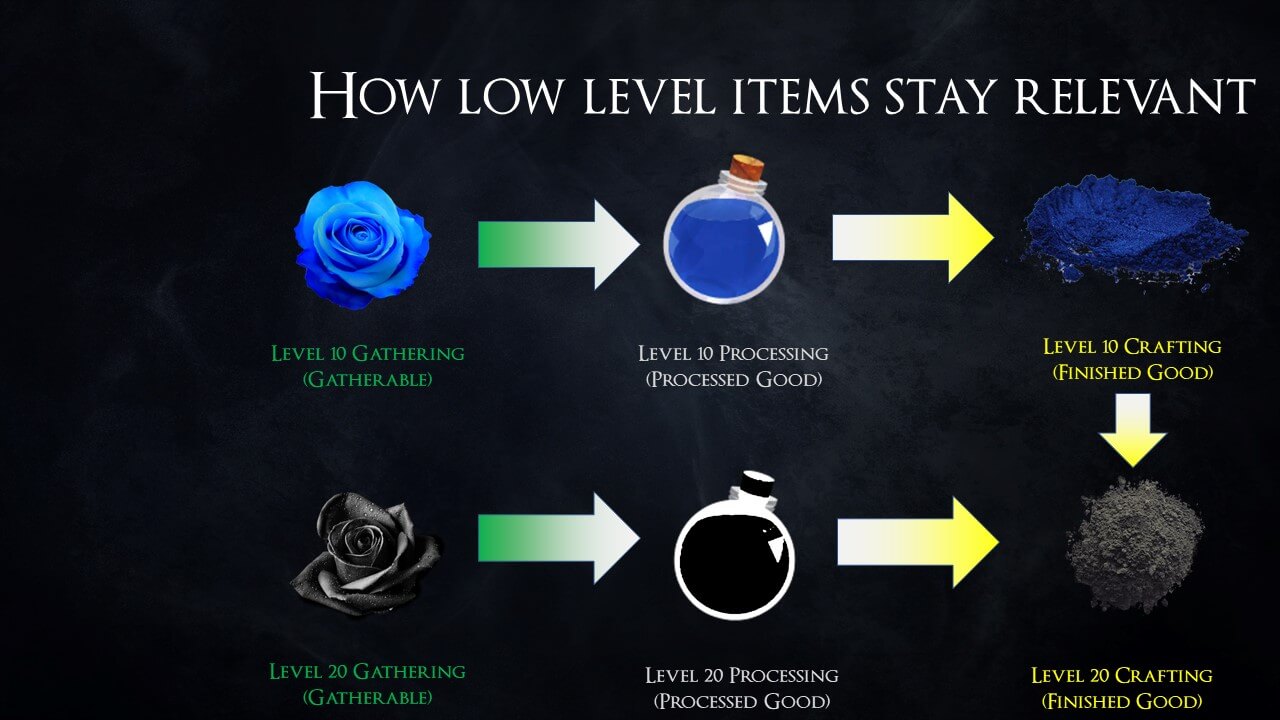Overview
Not everyone in MMORPGs likes to engage in combat. There are people who enjoy the more mercantile ways of life and they prefer to engage in Artisan (Gathering, Processing, Crafting) professions. The Artisan System Intrepid Studios is developing for Ashes of Creation is shaping up to be a very detailed. They are not adding the Artisan System as an afterthought or simply as a way to keep players busy.
In a lot of MMORPGs you find systems that are not really fleshed out. In Ashes of Creation the Artisan System is being added as a full-fledged gameplay style. In fact, it has been stated you can play Ashes just as an artisan. As we have seen in games such as Eve Online, you do not always have to be wielding a sword to influence or change the world. The golden rule tells us “he who has the gold, makes the rules” and if you can capitalize on the Artisan System you will have the gold you need to hire people to enforce your will and impact the world.
To keep all the sections of the webpage organized, I will only be talking about the overall Artisan System on this page. I will be creating three separate pages to talk about the intricate details of the Gathering, Processing, and Crafting systems on their own pages.
The current video to the right is rather dated. I am keeping it up for the time being because it is the only video I have on the subject, but I do plan on updating this video as well as producing the three sub videos as soon as I can.
The Three Branches of the Artisan System
The Artisan System allows players access to three branches: Gathering, Processing and Crafting. The specific skills listed under each of the categories represent only the confirmed professions at this time. There will be a lot more professions, specifically more processing professions, as the articles about the Artisan System are released.
These three systems will operate in a symbiotic relationship with each other, as the crafters need processed goods in order to make finished products, the processors need raw materials gathered to make processed goods, and gatherers will need artisan gear, backpacks, mules, caravans, out of the crafting professions to gather the raw materials.
I will insert a note here that, unlike most other games, in Ashes of Creation gatherers are able to make their own gathering tools. This breaks the standard unbalanced relationship between gatherers and crafters where usually the gatherers must work for pennies as their profit because they wind up buying their tools from crafters. I am very excited about this specific dynamic and being self-sufficient as a gatherer.
An important part of the Artisan System is that you can be a jack of all trades or a master of one, but you can only ever master one of the three sides of the triangle. This means if you were to decide to become a master miner, you could still do some beginner tier things in processing and crafting, but you would never be able to master anything in the processing or crafting sides.
Also interesting is a recent design change with Ashes. Previously it was stated by Steven Sharif (Creative Director) you could master all of the professions in a category. Now you will be able to master up to two professions, with the ability to achieve up to tier 3 or tier 4 in those professions you have not mastered.

Artisan Class vs Adventurer Class
Several people were asking if the Artisan Class had any effect on a character's Adventurer Class (Combat Class / Primary Archetype). The answer to this is no. Unlike some games where a blacksmith gets a bonus to strength on their character, or an alchemist gets a bonus to intelligence, these are two very separate systems.
Players of any Primary Archetype are free to choose any Artisan Profession without fear of choosing an incompatible stat mix.
Keeping Low Tier Items Relevant
One of the concerns artisans have is that lower-level resources become obsolete so there is only ever a market for the “end-game” or “top-tier” mats. Intrepid Studios is aiming to counter this issue by having the supply chain constantly pull from lower tier mats and then compound the requirements as you work your way up.
An example might be that a level 10 blue flower raw-resource exists that a level 10 processor uses to make blue coloring-dye (processed good) which a level 10 alchemist uses to make blue pigment which is a finished product.
In order to ensure not only those low level resources remain relevant, but also that low level gatherers, processors, and crafters have relevancy, a level 20 pigment (finished product) might require both level 20 raw resources to be turned into level 20 craftables but also that level 10 finished product.
Using this methodology ensures all materials stay relevant, not just the end-game stuff.

